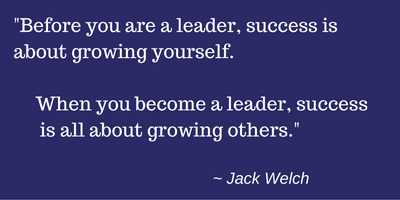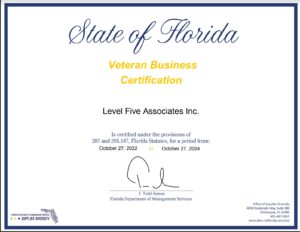 I think we all agree in principle with Jack Welch on this one; the problem is, we often don’t act in accordance with what we think. Growing leaders is a classic example of this challenge. We truly value the leaders we have who work hard to get the job done every day. We can’t say enough good things about them. Our success as a company or organization is largely based on what they’re doing to help set us apart.
I think we all agree in principle with Jack Welch on this one; the problem is, we often don’t act in accordance with what we think. Growing leaders is a classic example of this challenge. We truly value the leaders we have who work hard to get the job done every day. We can’t say enough good things about them. Our success as a company or organization is largely based on what they’re doing to help set us apart.
Yep, got all that, but do we ever consider what they could become if we truly invested in leadership development? My guess is most of us don’t have that perspective. We spend more time than we should trying to get the bottom 20% up to march speed with the rest of the organization, while the top 20% is left lonely. Because they are good, we treat them as being good enough, and leave them alone. In the Army, we called these strong leaders “fire and forget leaders.” But we should do better.
Here’s an approach I’ve seen used with real success in growing good leaders into great leaders (to paraphrase Jim Collins here) and ending the loneliness:
- Together with your high potential leader, build a Leadership Development Plan. This is a specific development plan for him or her, with training goals, professional development objectives, and a career path. Use milestones to measure progress. The LDP should form the basis of your one-on-one sessions, and feed directly into your performance evaluations.
- Formally schedule one-on-ones with your direct reports at least on a monthly basis, and don’t let them get postponed or canceled unless a real crisis occurs.
- Give your high potential leaders responsibility for organizing and directing cross-functional teams, especially those outside their area of expertise. True high potential leaders won’t be intimidated by leading these teams. Instead, they’ll embrace the opportunity.
- Invest in executive coaching and professional education for your best and brightest. This framework of external support will complement your personal time with these leaders, and insure they know you are fully committed to their personal and professional growth.
To be sure, I’ve never met a promising young leader who told me they were mentored or trained too much. So you will likely never have this conversation, either. But I’ve also met a lot of promising young men and women who told me they stayed with a company for many years – in many cases a career – because they felt like they belonged. Your personal, dedicated commitment to their maturation through a Leader Development Plan can be a game changer in setting the conditions for the good leaders to become great.
Our legacy is in the leaders we grow to their full potential. Dedicate yourself to the task ahead, and make it a priority in your daily life as a senior leader. You’ll see measurable results, and be justifiably proud of the men and women you help to develop to become better leaders than you are. Now that’s a real legacy. Enjoy the journey!





